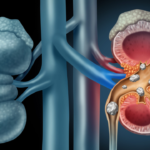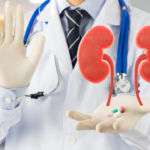
Urinary cancer, encompassing cancers of the bladder, kidney, and other urinary organs, poses a significant health challenge. While advancements in treatment modalities have been notable, the cornerstone of improving outcomes remains early detection. In this article, we delve into the crucial role that timely identification plays in shaping the trajectory of urinary cancer treatment, with insights from Dr. Dhake, a prominent urologist in Pimpri Chinchwad, Pune, and the head of Dr. Dhake Urology Clinic.
The Silent Progression of Urinary Cancer:
Urinary cancers often exhibit a silent progression, with symptoms manifesting at later stages when the disease is more advanced. Understanding the subtleties of early symptoms, such as blood in the urine, persistent back pain, or changes in urinary habits, can prompt individuals to seek medical attention promptly.
Diagnostic Tools and Techniques:
Advancements in diagnostic tools have revolutionized the early detection of urinary cancers. From imaging techniques like CT scans and MRIs to urine cytology and cystoscopy, healthcare professionals have an array of tools at their disposal to identify abnormalities in the urinary tract. These methods allow for a more precise diagnosis, enabling tailored treatment plans.
The Impact of Early Detection on Treatment Success:
Early detection significantly improves the chances of successful treatment outcomes. When urinary cancer is identified in its initial stages, treatment interventions are often less aggressive and more effective. Surgical procedures may be less extensive, and the potential for preserving kidney function or preventing cancer spread increases.
Risk Factors and Screening:
Understanding the risk factors associated with urinary cancer is instrumental in promoting early detection. Smoking, exposure to certain chemicals, and a family history of urinary cancer are among the factors that increase susceptibility. Routine screenings for high-risk individuals, combined with heightened awareness of symptoms, can enhance the likelihood of catching urinary cancer in its early, more treatable phases.
Public Awareness and Education:
Increasing public awareness about urinary cancer symptoms and the importance of early detection is paramount. Educational campaigns can empower individuals to recognize potential signs, seek medical attention promptly, and participate in routine screenings, especially if they fall into high-risk categories.
Challenges in Early Detection:
Despite the advancements, challenges persist in achieving widespread early detection of urinary cancer. Misinterpretation of symptoms, lack of access to healthcare, and a hesitancy to discuss urinary issues can contribute to delayed diagnoses. Addressing these challenges requires a multi-faceted approach involving public health initiatives, improved healthcare access, and ongoing education.
Conclusion:
In the realm of urinary cancer treatment, early detection remains a linchpin in the quest for improved outcomes, and the expertise of Dr. Dhake plays a pivotal role in this pursuit. The ability to identify and address the disease in its early stages not only enhances treatment efficacy but also contributes to better overall patient survival rates, a commitment upheld by Dr. Dhake at Dr. Dhake Urology Clinic. As we continue to advance in medical technologies and knowledge, prioritizing early detection strategies, guided by experts like Dr. Dhake, becomes increasingly crucial in the fight against urinary cancer.




